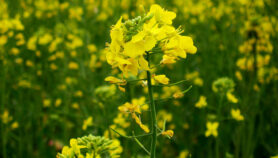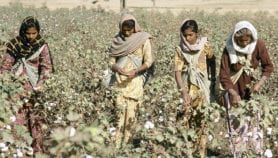By: Talent Ng’andwe
Send to a friend
The details you provide on this page will not be used to send unsolicited email, and will not be sold to a 3rd party. See privacy policy.
[LUSAKA] A survey of the media coverage relating to genetically modified (GM) crops in five developing countries has shown that news stories often lack critical analysis of the issues at stake, and rarely represent the views of farmers.
In four of the countries studied — Brazil, India, Kenya and Zambia — the media tended to follow the government line on GM crops while in Thailand the media generally opposes government plans to introduce the crops.
The study, by the UK-based Panos Institute, describes Zambia’s print media as the least engaged in reporting on GM research and policy of those studied.
The media survey was part of a larger study on GM decision-making, entitled GM debate – Who decides?, published last week (20 May).
In general, "much of the coverage analysed revealed a lack of analytical (or investigative) reporting", says the report. "Most of the news articles, for example, were based on announcements from government sources — a reflection of the relative weakness of investigative journalism in science-related issues in most developing countries."
The Zambian media was analysed between January and June 2004. During that period, says the report, the government-owned Daily Mail carried one news article on GM. Of 23 editorial and opinion articles on GM, 16 were against it.
The leading private newspaper, The Post, published one opinion/editorial article arguing for each side. The Green Times, an environmental magazine, carried three articles in favour of GM technology and four against.
Most articles published in the Zambian press opposed GM technology in agriculture without giving a voice to farmers in favour of the technology.
This last point was true in all five countries. "Farmers are among those most immediately affected by GM," write the authors. "However, their views, particularly those of small-scale farmers, are rarely reflected in the media."
In an interview with SciDev.Net, Evans Milimo, the editor of Zambia’s Daily Mail defended his paper’s coverage.
Citing a shortage of staff and the technical nature of genetic modification, Milimo said his paper does not have the capacity to cover GM technology in a balanced manner. He added that non-English papers faced the difficult task of translating jargon into local languages, another barrier to rigorous reporting.
"The reason we are quoting more government sources and scientists is that they have the capacity and resources to hold meetings and bring journalists together," Milimo said.
He added that both journalists and farmers in the country needed to be better trained in understanding GM technology.
The Panos Institute’s report says Zambia’s print media is unusual in that it carries no quotations from non-governmental organisations that favour GM technology.
Such organisations have, in some of the countries studied, been set up by biotechnology companies whose public relations activities influenced the direction of press coverage of GM issues.
As in Zambia, the media in Thailand has taken a biased approach to GM technology, with a distinct predominance of anti-GM editorials, opinion articles and quotations, says the report.
Even sceptics of GM technology in the country feel the public and the media debate on GM technology is one-sided and unsatisfactory, it adds.
The situation is different in India, which has the largest GM research project in the developing world. There, the media is supportive of GM crop technology but "journalists do not report on the claims of industry uncritically and mostly seek to balance their articles with different views".
In Kenya, one of the African countries whose government supports GM technology, journalists quote pro-GM sources more than those opposing the technology.
In Brazil, the world’s fourth largest grower of GM crops, the views on GM in the media changed radically around 2002. That was when the biotechnology industry set up the Council on Information on Biotechnology to promote its views, and when GM technology companies such as Monsanto began engaging with the media more directly, such as by offering journalists interviews.
The study also found that in India, Kenya and Zambia the non–English media carries very little coverage of GM issues.
"This was perhaps one of our more worrying findings," says Ehsan Masood, the report’s lead author and a consultant to SciDev.Net. "The vast majority of people in each of these three countries obtain their news from media sources in their own languages and not in English. They are in effect being tuned out of the GM debate."
Link to full report by the Panos Institute ![]()
Read more about GM crops in SciDev.Net’s GM crops dossier.













